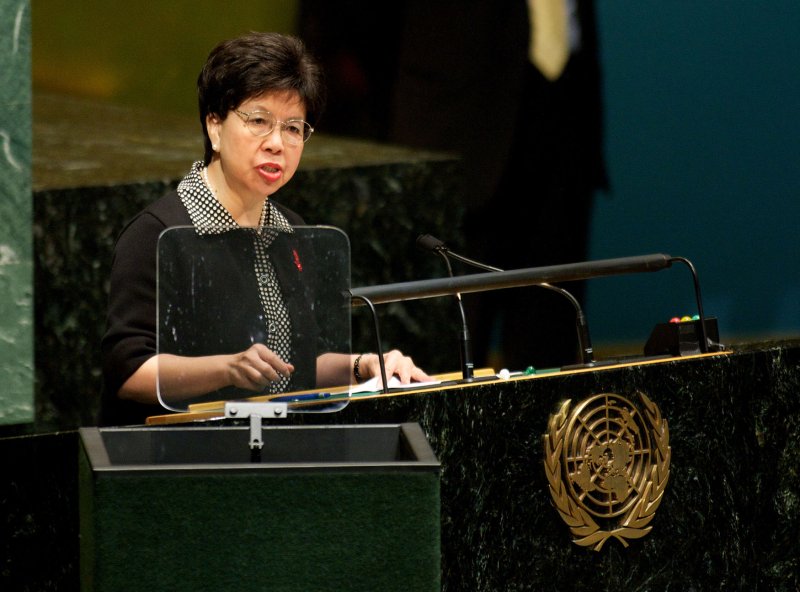WHO: Majority of SARS-like virus cares are severe.
Dr Margaret Chan, director-general of the World Health Organization, addresses assembly. UPI/Monika Graff |
License Photo
GENEVA, Switzerland, May 29 (UPI) -- Two healthcare workers in Saudi Arabia became ill from patients who have the SARS-like virus -- newly named the MERS-CoV virus, experts say.
The SARS-like virus, identified as the novel coronavirus, was first detected in March 2012. It has caused 49 confirmed cases of infection and 27 deaths, officials at the World Health Organization in Geneva, Switzerland, said.
Coronaviruses cause illnesses ranging from the common cold to Severe Acute Respiratory Syndrome, as well as a variety of animal diseases. However, the new virus is not SARS.
The disease is a significant public health risk under the International Health Regulations and WHO issued recommendations for enhanced surveillance and precautions for the testing and management of suspected cases. WHO is working closely with countries and international partners, CNN reported.
The Coronavirus Study Group of the International Committee on Taxonomy of Viruses has published a proposed new name for the novel coronavirus, the Middle East Respiratory Syndrome Coronavirus, or MERS-CoV, WHO officials said.
"The proposed name MERS-CoV represents a consensus acceptable to WHO, built on consultations with a large group of scientists," WHO said in a statement.
The virus' symptoms, which include fever and a cough, are severe and can lead to pneumonia and kidney failure, health officials said.
Health officials do not yet know much about how the virus spreads, which makes it hard for scientists to prevent infections, a WHO official said.
Several countries in the Middle East have been affected, including Jordan, Qatar, Saudi Arabia, and the United Arab Emirates. Most recently, Tunisia reported one probable and two confirmed cases, with history of travel to the Arabian Peninsula for two of them. Cases with direct or indirect connection to the Middle East have also been reported by France, Germany and Britain.















